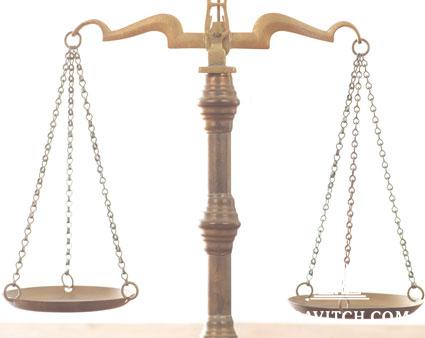(lubavitch.com) If a son kills his parents in order to claim their estate, does he still get to inherit?
This and five other provocative issues form the basis for the Rohr Jewish Learning Institute’s latest course, “You Be the Judge II: An Exhilarating New Exploration of Jewish Civil Law.” Coming on the heels of a popular 2006 series with the same name, the six-week course seeks to “introduce Talmud to the public through a case study method incorporating American cases,” explains JLI’s curriculum developer, Chana Silberstein. The synthesis of authentic Talmud and contemporary cases gives students “an emotional immediacy where they can relate to real people and real cases,” she says.
The Talmud documents rabbinic discussions regarding Jewish history, law, and ethics. Written over 2,000 years ago, it continues to occupy and engage Jewish students. It is, according to Silberstein, “the pinnacle of Jewish intellectual creativity, incorporating the essence of morality and legality: the two timeless questions of ‘whose is this’ and ‘is it fair?’”
Silberstein points to one case, highlighted in the third class, which deals with just these issues. What happens if two people claim something is theirs? Neither has a witness or written proof. What principles help in deciding actual ownership?
To offset the Talmudic account, a 2004 South Carolina case is presented in which Thomas Law Willcox, a descendant of a confederate general, put up several hundred Civil War documents for auction. The government tried to seize the papers, worth over two million dollars, claiming that despite the Willcox family’s ownership for over a century, the effects belonged to them. Ultimately, the courts decided in favor of Willcox.
Verdicts were long in coming in the courtrooms of old, and are hardly presented on a silver tray in classrooms today. Students analyze various Jewish legal texts and add their own professional knowledge in a quest to discover the actual ruling.
“This course is unique among other JLI offerings in that it is wholly interactive,” Rabbi Cheski Edelman says. “The emphasis in the class is on ‘You.’ We begin by studying a concept of Talmudic law and then introduce a question brought before the judges on the ancient Jewish court. Then it is up to the students to discuss and resolve the issues.
“The lawyers give good answers,” Edelman laughs, “but when they see what the early scholars had to say, it blows their minds away. They are totally off.”
Edelman has a lot of experience helping students understand the Talmudic angle. He taught nine JLI courses in Springfield, Massachusetts, where he served as adult education director. Now living and running a Chabad Center in Olympia, Washington, the young rabbi expects an eclectic group of 18 lawyers, housewives, and doctors to attend February’s course.
In Perth, Australia Rabbi Shalom White is reviewing materials, exploring ideas, and searching for additional sources. Although instructors receive comprehensive courses, it takes White and his colleagues approximately 10 hours to prepare each lesson. When his 35 students arrive, it will all be worth it.
“People find it interesting to learn that the cases that they thought were revolutionary in today’s age, were already debated in the study halls thousands of years ago,” he says. “Often they use similar logic and ideals to arrive at the conclusion—but there is always a twist, new insights offered from those ancient halls.”
“So often lawyers tell me that the course allows them the joy of thinking,” relates Silberstein. “It reminds them of why they became passionate about law in the first place.”
Though the courses are not solely for those with a legal background, lawyers do get a bonus. “You Be the Judge” is eligible for CLE credits in 17 states and CPD credits in British Columbia and the United Kingdom. “People who may otherwise be too busy to take a course on Jewish ethics or philosophy are given a novel opportunity to learn the Jewish perspective while accruing CLE credits,” states Rabbi Ephraim Mintz, director of JLI. Not only that, he says, “but attorneys are always amazed to see how the ancient Talmud resonates with modern living. It is not foreign or remote; it is relevant to the here and now.”
And so the question remains: does a murderous son inherit his dead parents’ property?
According to secular law, explains the author of “You Be the Judge,” Rabbi Eli Silberstein, an inheritance is based on the will of the deceased. American courts may therefore conclude that a slain individual would not want his property to be passed on to his killer.
Jewish law, on the other hand, interprets inheritance in an entirely different manner. “There is a natural flow between parents and children. When a parent dies, his child is his natural extension. According to the Talmud a person’s property is preordained, and thus runs automatically from father to son.”
“The same rule,” continues Rabbi Silberstein, “relates to a Jewish person’s spiritual inheritance. Even if someone has been assimilated for five generations, he has a connection to his Jewish heritage, it remains his inheritance.”
It is that inheritance that JLI directors and instructors hope to pass on to thousands of students in 280 cities around the world.

Be the first to write a comment.